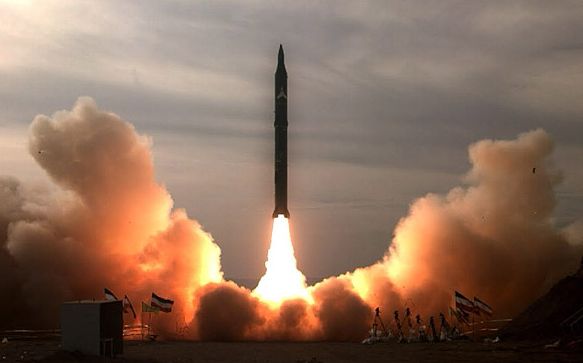Dissuading Iran from developing nuclear weapons faces major obstacles, but it’s too soon to give up trying as it may still be possible to influence the outcome of Iran’s internal political debate, according to a RAND Corporation study issued today.
The study, “Iran’s Nuclear Future: Critical U.S. Policy Choices,” describes the complex considerations underlying future U.S. policy options in responding to Iran’s evolving nuclear program. It also assesses the potential effectiveness of each policy option and concludes that difficult policy trade-offs will be required.
“Iran’s national security interests — the survival of the regime, the protection of its homeland and its goal of expanding its regional influence — are unlikely to change,” said Lynn E. Davis, the lead author of the study and a senior political scientist at RAND, a nonprofit research organization. “The challenge for the United States is to influence how the Iranian leadership pursues these interests, for they could provide reasons for acquiring nuclear weapons.”
The study details three policy options to dissuade Iran from developing nuclear weapons: apply broad-based economic sanctions on the country or specific sanctions that target banks and businesses of the Revolutionary Guards; apply military pressure by training for conventional attacks against Iran’s nuclear facilities and expanding regional missile defense systems; and offer incentives not to build nuclear weapons by lowering the perception of the U.S. military threat in Iran and easing economic sanctions.
Researchers acknowledge that incentives are a two-edged sword, as they could reward Iran for intransigence and send the wrong signal to other potential proliferators. Moreover, incentives are not politically popular in the United States.
The study also details a variety of U.S. approaches to deterring an Iranian attack against U.S. military forces in the Middle East should Iran develop nuclear weapons. Researchers find that traditional threats of punishment or denial may be problematic and so an approach to manage escalation in a conventional conflict needs to be considered.
As the United States will need to find ways to influence Iran to achieve its nuclear dissuasion and deterrence goals, the study offers three integrated approaches, each with its own perspective, costs and benefits:
- Iran responds only to pressure, and so the United States needs to raise the costs to Iran by expanding economic sanctions as well as conventional offensive and defensive military capabilities. This could undermine factions that could oppose the development of nuclear weapons within Iran and it is unlikely to be supported by U.S. partners in the region until Iran is a nuclear power.
- Iran responds to the prospect of losing gains, not threats, and so the U.S. needs to deny benefits to Iran through targeted economic sanctions and the build-up of regional missile defenses and offensive strike capabilities. The United States’ partners are likely to support this approach, but it is somewhat undermined by its uncertain military feasibility.
- Iran’s sense of vulnerability motivates its behavior, and so the United States needs to reduce the threat to Iran by relaxing economic sanctions and focusing on managing escalation in a potential conflict with Iran. This could bolster the efforts of those within Iran who oppose their government’s nuclear ambitions, but is unlikely to gather support from U.S. partners or the U.S. public.
U.S. decision-makers will thus face policy choices at each stage in the future evolution of Iran’s nuclear program. “Making those choices is needed so as to send clear signals to Iranian leaders of the United States’ intentions and make it easier to gain the support of U.S. partners in the Middle East,” Davis said. “It is also crucial to gaining the support of Congress and the American people.”
[Download not found]









